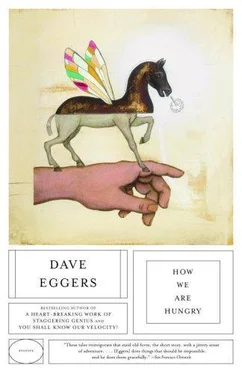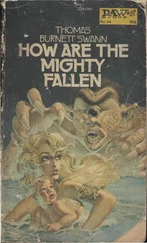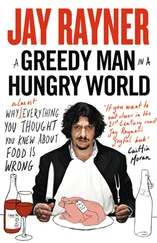Dave Eggers - How We Are Hungry
Здесь есть возможность читать онлайн «Dave Eggers - How We Are Hungry» весь текст электронной книги совершенно бесплатно (целиком полную версию без сокращений). В некоторых случаях можно слушать аудио, скачать через торрент в формате fb2 и присутствует краткое содержание. Год выпуска: 2005, Издательство: Vintage Canada, Жанр: Современная проза, на английском языке. Описание произведения, (предисловие) а так же отзывы посетителей доступны на портале библиотеки ЛибКат.
- Название:How We Are Hungry
- Автор:
- Издательство:Vintage Canada
- Жанр:
- Год:2005
- ISBN:нет данных
- Рейтинг книги:3 / 5. Голосов: 1
-
Избранное:Добавить в избранное
- Отзывы:
-
Ваша оценка:
- 60
- 1
- 2
- 3
- 4
- 5
How We Are Hungry: краткое содержание, описание и аннотация
Предлагаем к чтению аннотацию, описание, краткое содержание или предисловие (зависит от того, что написал сам автор книги «How We Are Hungry»). Если вы не нашли необходимую информацию о книге — напишите в комментариях, мы постараемся отыскать её.
A Heartbreaking Work of Staggering Genius
How We Are Hungry — читать онлайн бесплатно полную книгу (весь текст) целиком
Ниже представлен текст книги, разбитый по страницам. Система сохранения места последней прочитанной страницы, позволяет с удобством читать онлайн бесплатно книгу «How We Are Hungry», без необходимости каждый раз заново искать на чём Вы остановились. Поставьте закладку, и сможете в любой момент перейти на страницу, на которой закончили чтение.
Интервал:
Закладка:
“Nothing. Getting stuff.”
“What stuff?”
“Just some stuff. Friend’s stuff.” Somehow that sounds shady. But he lets it go. She seems impressed.
Wendy pushes the radio scan button a few times, and finds the “Oooh-oooh, Jackie Blue” song.
“I love this song,” she says, and slaps her lap loudly. She leaves her hands there, grabbing her thighs as if to keep them in place.
“So do you party?” she asks.
“What?”
“Do. You. Party.”
“In general? I don’t—”
“You know. Party.”
He’s lost. He gives her a pleading look.
“You and me, party, handsome. We should go party somewhere. We could stop and get a drink and stuff. Or a room. Get some weed. Whatever.”
Fish finally knows. Shit. Normal women don’t call men “handsome”—only waitresses and prostitutes do that. It’s a shame, though. “Handsome” is such a beautiful word.
Fish gives her offer some thought. Her thighs have his head lunging. But it would cost too much, right, spending time with a woman like this? He doesn’t know. How did I get to my age without knowing how much things like this cost? But he can’t. He never takes off his shirt with people he doesn’t know. She’d see the hair on his shoulders and his hernia scar, much more sinister than it needed to be and she’d think he was a bad package, that the hair and the crooked smiling scar were proof he needed to pay for the kind of company she could offer.
“Nah, I gotta get down to Redondo,” he says, as if deciding whether or not to see an afternoon movie. “My friend’s waiting for me. And his wife and my mom and everyone. Cousins.” His mouth is adding family members quicker than his head can count. “They’re probably all waiting up.”
“We can be quick, if you want,” she says.
Another orange-and-black bird appears, shooting across the road low and fast. Fish wants to ask Wendy if she knows what they’re called — thrushes? finches? Not that it would make any difference, knowing their name. A name is a diagnosis, and neither makes a bit of difference. He glances over at her; her shoulders are squared to him now, her chin lowered. “I’m not expensive,” she says.
Fish pulls off the highway and under a gas-station canopy; it’s bright like daylight and he thinks of Reno. Wendy has asked to use the bathroom, and here her skin looks blue, translucent, as if lit from within, and the humidity has lifted. Instead of using the bathroom, though, she heads straight to the pay phone, and while she’s on the phone she waves Fish away like he’s her father dropping her off at a concert. He leaves.
By the time he gets to a phone to call Annie, it’s too late. He wakes her up, or she pretends to have been asleep. Her first syllable is full of scorn, and he wonders if Wendy is still at the gas station where he left her, a few miles back. “You have to start thinking of other people, honey,” Annie says, now without anger, without anything, and hangs up.
He is back at the hospital twenty minutes later. It’s well after midnight, and he has no hope of getting up to Adam’s room through the doors. He parks his car in the same spot and calculates which window is his. He knows that Adam is on the third floor, and the two possible windows are on either side of the steel ladder. So he runs under the willows and through the palmettos and starts up.
It’s the left window. He can see Adam in the light of the TV. His twelve-year-old’s face is facing Fish now, eyes closed. The brownie woman has gone.
As Fish is about to tap on the glass, Adam opens his eyes. When he sees Fish, he’s disbelieving. He closes one eye, as if looking through a telescope, to be sure. Fish waves, and Adam, with his fingers only, waves back.
Fish hasn’t thought any further than this. If he had a specific message for Adam, he could mime it through the glass, but he doesn’t have that kind of message.
Adam mouths the word “How?” and points to Fish. Fish is about to mime climbing a ladder but realizes he can’t do this without taking both hands off the rungs. He tries it with one hand, but it looks more like he’s shopping, like he’s doing the shopping-cart dance. Adam doesn’t get it.
Fish shakes his head, wiping the board clean. He decides he’ll pry the window open and tumble in and talk. But the window frame is flush to the building. It will not give.
Fish knocks his head on the glass, twice. Adam smiles. Fish does it a few more times, just to entertain him. Adam pretends to be laughing a lot. It isn’t as great as either of them makes it out to be, but there isn’t anything else to do. Soon Adam yawns. Fish yawns. Adam’s eyes are flickering, so Fish gestures that he’ll see him tomorrow, rolling his hand like he’s creating a wave, the wave meaning tomorrow, rolling and rolling.
Fish drives to Redondo and checks into a Red Roof by the highway. He figures he’ll call Annie in the morning and then see Adam again on his way back north, and do something with all the bags after he’s gone through them and dumped the pills and anything else he doesn’t want Adam to have. He resolves to get him a real suitcase or two, something with a hard shell, sturdy. He can do that tomorrow.
Tomorrow!
Tomorrow he can put Adam’s stuff in the sturdy suitcases and take them to him, put them in the hospital room, lined up by the door so they’re there when he’s ready to leave. Adam can be a promising young man with neat sturdy suitcases. Fish will repack everything, put it all in two rows, pants on one side and shirts on the other, with the second suitcase holding the other things — socks and underwear and toiletries and belts, baby powder. Tomorrow he can do these things better than he did today. Tomorrow! Tomorrow!
Fish’s Red Roof room is dark and he knows he’s being stupid. The walls smell like people, and he doesn’t deserve this, to be tricked like this again. He had made so many promises to himself that he would never waste himself, never again hand a pure intention, so much like a newborn, to someone so careless. He is done being fooled. Why would that Daly City man jack him on a bad check? It was such violence. He will not be the sucker. He doesn’t want to be a part of the world under the highway. No. Today was tomorrow and tomorrow was always the same. No, he’ll skip Annie and Adam and just get a shotgun now and go to that farm on I-5 and shoot a bunch of stupid cows. Ha ha! They wouldn’t make it, anyway — so many animals are built to die. Maybe cut off their heads and hollow them out and wear one as a mask. Yes! Just for fun. Just to do it. The humidity inside one of those big heavy heads — he’d love to see what it’s like in there for a second. His clean hair would be covered in blood, his face wet, filthy from the stuff he didn’t scoop out before he put the fucking thing on.
SHE WAITS, SEETHING, BLOOMING
SHE IS A SINGLE MOTHER and has no interest in any men but her son, who is fifteen and has not called. It is 2:33 am and he hasn’t phoned since 5:40 that evening, when he said he’d be eating dinner out. And now she is watching Elimidate , drinking red wine spiked with gin, and is picturing hitting her only son with a golf club. She is picturing slapping him flat and hard across his face and is thinking that the sound it would make would almost make up for her worry, her inability to sleep, the many hundreds of dire thoughts that have torched her mind these past hours. Where is he? She doesn’t even know where he would go, or with whom. He’s a loner, he’s an eccentric. He is, she thinks, the sort of teenager who gets involved with deviants on the Internet. And yet somehow she knows that he is safe, that he is fine but has for whatever reason been unable to call, or has not even given it much thought. He is testing his boundaries, perhaps, and she will remind him of the consequences of such thoughtlessness. And when she thinks of what she will say to him and how loudly she will say it, she feels a strange kind of pleasure. The pleasure is like that enjoyed by the passionate scratching of a body overwhelmed with irritation. Giving oneself up to that scratching, everywhere and furious — which she did only a month earlier when she’d contracted poison oak — that was the most profound pleasure she had ever known. And now, waiting for her son and knowing how righteous will be her indignation, how richly justified will be anything she yells into his irresponsible face, she finds herself awaiting his arrival in the way the ravenous might await a meal. She is nodding her head. She is tapping a pen against her dry lips. She tries to order her thoughts, to decide where to start with him. How general should her criticisms be? Should they be specific only to this night, or should this be the door through which they pass in order to talk about all of his failings? The possibilities! She will have license to go anywhere, to say anything. She pours more gin into her tumbler of merlot, and when she looks up, at 2:47, his headlights are drawing chalk across the front window. This will be divine, she thinks. This will be superb. It will be florid, glorious; she will scratch and scratch and bloom. She runs to the door. She can’t wait for it to begin.
Читать дальшеИнтервал:
Закладка:
Похожие книги на «How We Are Hungry»
Представляем Вашему вниманию похожие книги на «How We Are Hungry» списком для выбора. Мы отобрали схожую по названию и смыслу литературу в надежде предоставить читателям больше вариантов отыскать новые, интересные, ещё непрочитанные произведения.
Обсуждение, отзывы о книге «How We Are Hungry» и просто собственные мнения читателей. Оставьте ваши комментарии, напишите, что Вы думаете о произведении, его смысле или главных героях. Укажите что конкретно понравилось, а что нет, и почему Вы так считаете.












